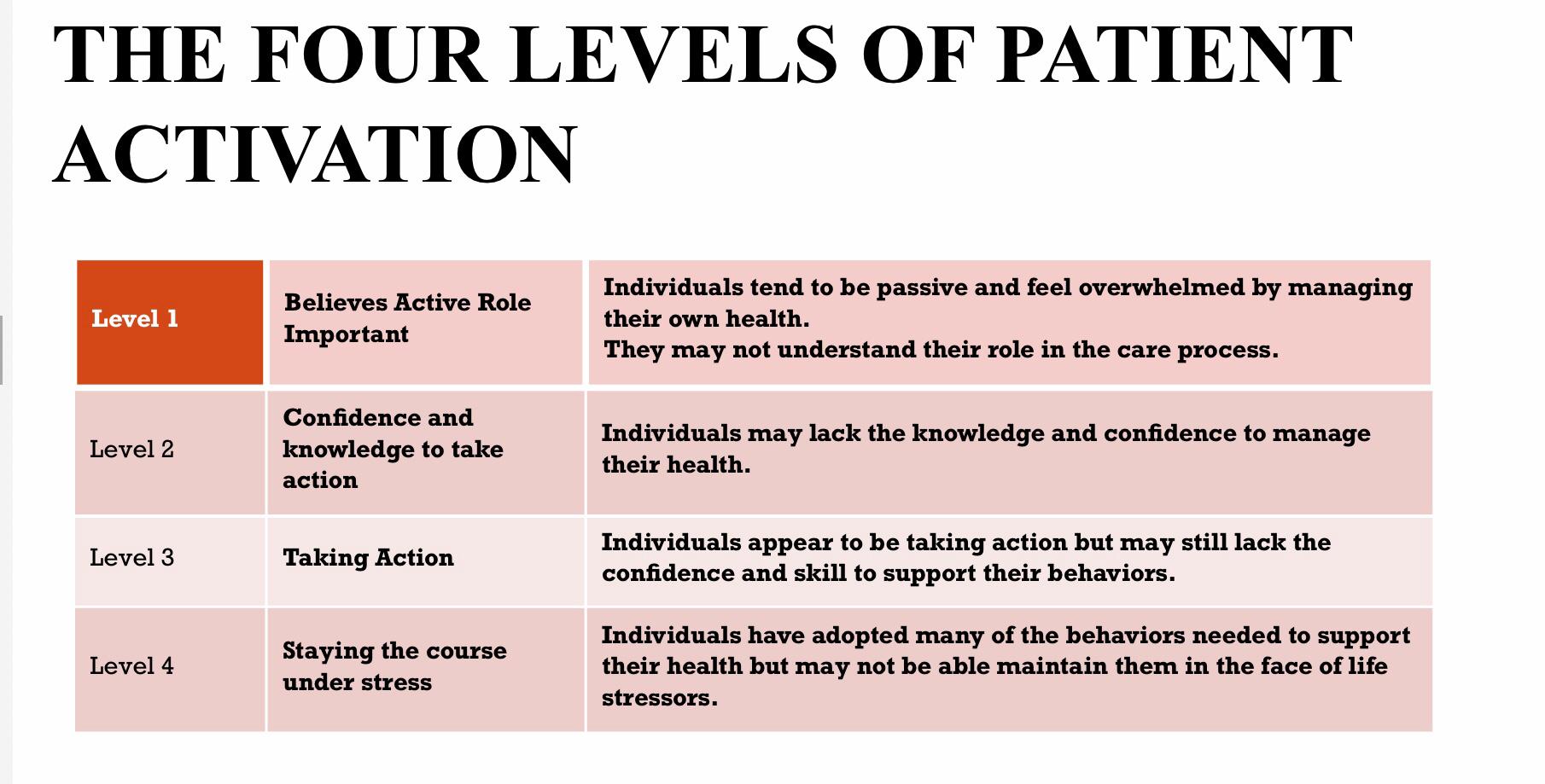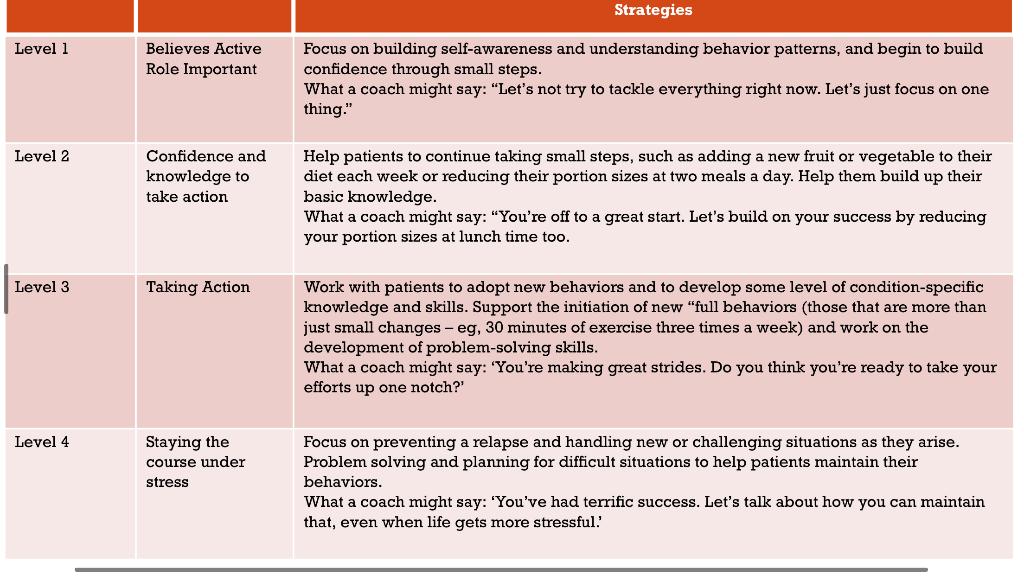Imagine you are working in a hospital as a health educator and adoctor refers a patient with HIV to you for educating about HIVself-management.
Write in detail how can educate the patient by using activationlevel.
Transcribed Image Text from this Question
THE FOUR LEVELS OF PATIENT ACTIVATION Level 1 Believes Active Role Important Individuals tend to be passive and feel overwhelmed by managing their own health. They may not understand their role in the care process. Level 2 Confidence and knowledge to take action Individuals may lack the knowledge and confidence to manage their health. Level 3 Taking Action Individuals appear to be taking action but may still lack the confidence and skill to support their behaviors. Level 4 Staying the course under stress Individuals have adopted many of the behaviors needed to support their health but may not be able maintain them in the face of life stressors. Strategies Level 1 Believes Active Role Important Focus on building self-awareness and understanding behavior patterns, and begin to build confidence through small steps. What a coach might say: “Let’s not try to tackle everything right now. Let’s just focus on one thing.” Level 2 Confidence and knowledge to take action Help patients to continue taking small steps, such as adding a new fruit or vegetable to their diet each week or reducing their portion sizes at two meals a day. Help them build up their basic knowledge. What a coach might say: “You’re off to a great start. Let’s build on your success by reducing your portion sizes at lunch time too. Level 3 Taking Action Work with patients to adopt new behaviors and to develop some level of condition-specific knowledge and skills. Support the initiation of new “full behaviors (those that are more than just small changes – eg, 30 minutes of exercise three times a week) and work on the development of problem-solving skills. What a coach might say: ‘You’re making great strides. Do you think you’re ready to take your efforts up one notch?’ Level 4 Staying the course under stress Focus on preventing a relapse and handling new or challenging situations as they arise. Problem solving and planning for difficult situations help patients maintain their behaviors. What a coach might say: ‘You’ve had terrific success. Let’s talk about how you can maintain that, even when life gets more stressful.’
(Visited 2 times, 1 visits today)





